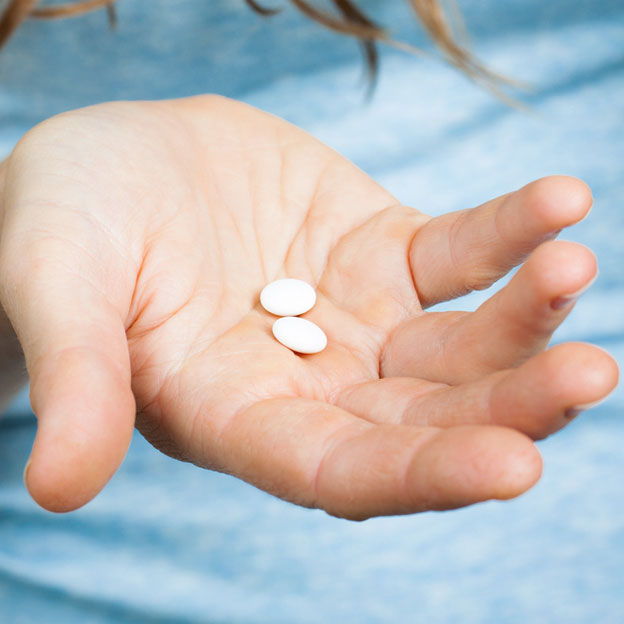You’ve been living with diabetes for quite a while, and your doctor informs you that you must start taking medication. Does this raise questions, reticence? Get more information to help allay your fears and take an active part in your treatment.

Overview of diabetes
Diabetes is a disease that is characterized by the insufficient production of insulin or an inadequate response of the cells to its effects. The result is a blood sugar level that is too high (hyperglycemia). This phenomenon is responsible for complications linked to diabetes, which affect the heart, kidneys, nerves, blood vessels and eyes, in particular, in the more or less long term.
Why and how is diabetes treated?
Diabetes is a chronic illness, in other words, it cannot be cured. But you can control it by regulating your glycemia (blood sugar levels) within normal levels. The aim of treatment is to limit the impacts of diabetes on your health.
In order to help control glycemia, it is important to adopt healthy lifestyle habits. This includes:
- maintaining a balanced diet;
- attaining a healthy weight;
- practising regular physical activity;
- limiting your alcohol consumption;
- monitoring your sugar levels.
It is possible that, in spite of all your good intentions and the adoption of these various steps, your sugar levels remain too high. This is when it might be time to start taking oral medication. But remember that taking this medication does not mean you can stop following the healthy lifestyle habits mentioned above. They are a complement to these treatment measures.
Oral anti-diabetic medication
Let’s take a look at the oral medication used in the treatment of diabetes. It is important to differentiate between Type 1 and Type 2 diabetes. Type 1 diabetes occurs when the pancreas cannot produce insulin. Thus, it must be treated with insulin injections. Type 2 diabetes can be treated by adopting healthy lifestyle habits, with the help of oral medication and sometimes insulin injections, if necessary.
Make no mistake about it: oral medication used in the treatment of diabetes, called oral anti-diabetics, are not pills that contain insulin. Insulin is in fact always given by injection, because if taken orally, it would be quickly destroyed by gastric sugars in the stomach, rendering it ineffective.
Oral anti-diabetics work on various levels of the body. Among other things, they can contribute to increasing insulin production or allow the body to better use the insulin produced by the pancreas. Some injectable medications that are not insulin are also available.
Choosing your medication
Finding the right medication is different for every person. You and your doctor will determine which medication is best for you, keeping in mind various factors, such as:
- your sugar level and symptoms;
- your other health issues;
- your lifestyle habits;
- any other medications or natural products that you are taking.
In order to ensure that you receive the best treatment by your doctor or treatment team, it is important to continue monitoring your sugar levels and register them in your blood glucose logbook. This will help in implementing any required changes to your treatment.
Your pharmacist, THE drug expert
One good way to help you stick to your medication routine is to know what you are taking. As a medication specialist, your pharmacist is an invaluable resource. He or she can provide you information on:
- how your medication works;
- the best time to take it;
- any potential undesirable effects;
- the risks of drug interaction with other medication or natural health products you are taking, or your diet.
Sticking to your treatment, and taking your medication regularly as prescribed, is the indisputable key to the success of your treatment. If you frequently forget your routine, your pharmacist can propose solutions adapted to your particular lifestyle.
Undesirable side effects can occur when taking any medication. Fortunately for most people, these side effects are temporary and disappear as fast as they appeared. Don’t hesitate to discuss this with your pharmacist so as not to compromise your treatment. Solutions can be found to avoid or alleviate any potential undesirable effects.
Your pharmacist can be a precious ally in helping you to manage your diabetes and prevent any consequences. He or she can be of great assistance in many ways, especially:
- by helping you choose a glucose meter adapted to your specific needs;
- by showing you how to use it properly to monitor your blood sugar levels;
- by offering advice to better cope with diabetes on a daily basis;
- by providing written information about your medication and your illness;
- by directing you to other resources, such as a diabetes info centre;
- by following the treatment response (effectiveness and secondary effects);
- by discussing with your doctor to adjust treatment, if necessary;
- by helping you to stop smoking.
People who have diabetes need help and support to better manage their diabetes. When it comes to your medication, closely following the orders of healthcare professionals, among others, is one of the most profitable strategies you can adopt. You can outfox diabetes... you have the power to do it!

